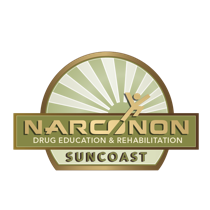The Difference Between 12-Step and Non-12-Step Programs

There’s tons of drug rehab modalities out there, but the question is, what’s the right one for you or your loved one?
In drug rehabilitation, there’s generally three options for treatment:
First, there’s out-patient treatment. Out-patient is when a person stays and lives at home and continues working and doing their daily routine. A few times a week, they’ll go to a clinic where they’ll do group therapy, get drug tested, and possibly see a psychiatrist who will prescribe them medication. For most addicts, this isn’t a high enough level of care because most of the time, they never stop using drugs. They still have easy access to whatever they want, so if they have a bad day in therapy, drugs are just a phone call away.
The second option for rehab are your “traditional” 30-day, 12-step treatment centers. Here, the 12-step recovery program is used in addition to providing detoxification and counseling services. The 12-step program believes that addiction is an incurable disease that a person will have for the rest of their lives. The only way to keep their “disease” at bay is to attend 12-step meetings, get a sponsor, work the steps, and gain spiritual enlightenment. Since this method of treating addiction believes that it’s a disease, quite often, psychiatric drugs are used to treat the “underlying mental disorders” they believe drive a person’s addiction. Detox medications like Suboxone or Methadone are commonly used as well and an addict will generally stay on a combo of detox drugs and psychiatric drugs, even after they discharge from the program. Thirty days isn’t enough time to get someone clean. In 30 days, a person only has enough time to get through their detox and then get some group and one-on-one counseling and before they know it, ready or not, they’re out the door and back on the street, having to figure out how to make their lives work. Don’t get me wrong, 12-step programs work really well for some people and they do well, build their lives back up, and stay sober for the rest of their lives, however, there are a lot of addicts who this type of treatment doesn’t work for.

The third option for drug treatment is long-term, residential care. Here, the belief is not that addiction is a disease but that addiction is caused by underlying issues that drugs have become a solution for. For most addicts, drugs are a solution to a problem. Whether it be low self-confidence, low self-esteem, anxiety, depression, or to deal with a trauma, drugs become their ultimate solution for everything. They’re quick, easy, and work every time they take them. So, the addict keeps using drugs to handle their problems and eventually get physically addicted. To keep the withdrawals away, they keep using and after a series of bad decisions, they wind up with a full-blown addiction.
Long-term, residential care takes a more behavioral approach and handles not only the physical addiction but also deals with the mental and emotional side to addiction as well. The Narconon program is a long-term drug and alcohol rehabilitation program. Here, people aren’t considered addicts for life and it’s believed that after having their core issues handled, addicts can go and live a completely normal life. More drugs aren’t used to get the person off the drugs they’re taking and these programs take a more holistic approach to drug rehabilitation. Unlike 30-day treatment centers, Narconon Suncoast takes a minimum of 3 months to complete with no maximum length of stay and will continue working with an addict and their family until they’ve successfully dealt with their issues. Lastly, Narconon is generally cheaper than traditional rehabs and offers more complete services, giving an addict a better chance at achieving long-term success. By reaching the core of what drives a person to drug use, Narconon Suncoast has a higher success rate than any other program out there and is able to return people back to their families as drug-free, contributing members of society.
Remember:
There are no short-term solutions to achieve long-term sobriety.
Contact Us
Please use this form for general inquiries to Narconon.
